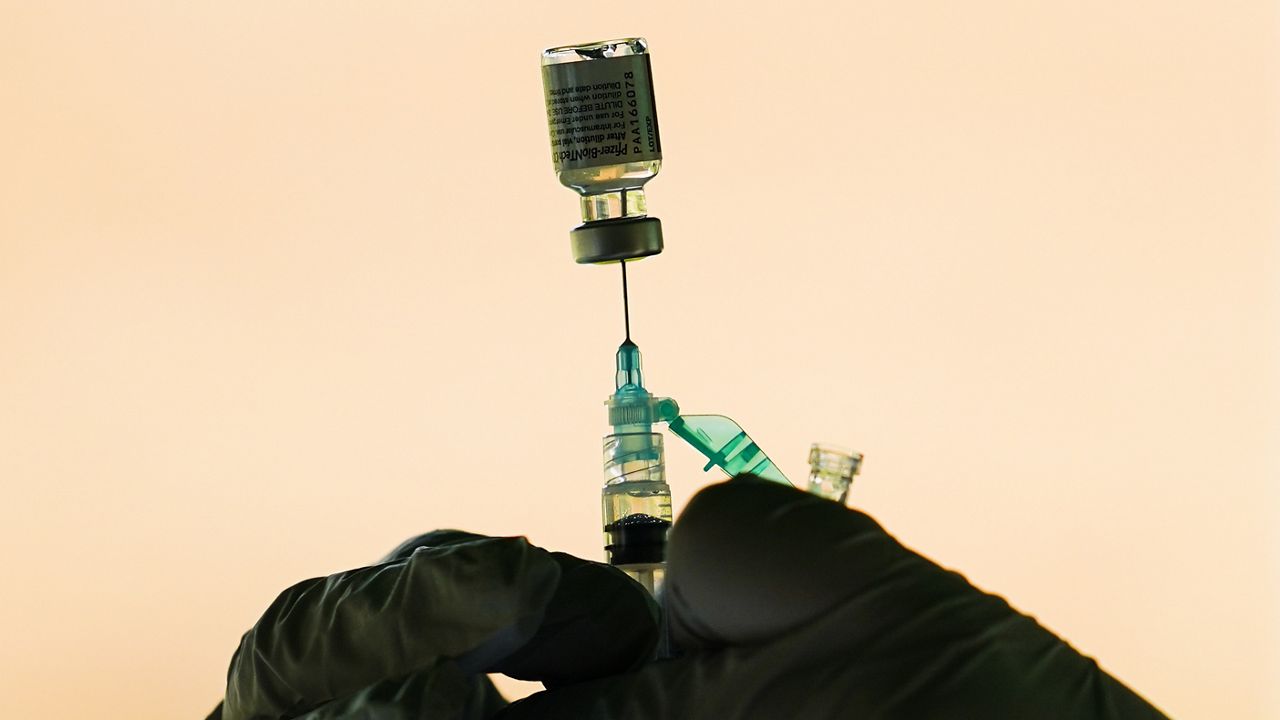There is strong evidence that the effectiveness of the Pfizer-BioNTech COVID-19 vaccine wanes over time and that a booster shot is needed to keep people protected, according to data submitted by Pfizer to the Food and Drug Administration.
What You Need To Know
- There is strong evidence that the effectiveness of the Pfizer-BioNTech COVID-19 vaccine wanes over time and that a booster shot is needed to keep people protected, according to data submitted by Pfizer to the Food and Drug Administration
- The FDA released the data Wednesday, two days before its committee of outside vaccine advisers will meet to discuss Pfizer’s application requesting approval to administer third dose of the shots
- Pfizer said data from Israel and the United States show that protection from its vaccine against infection diminishes approximately six to eight months after the second dose
- The company cited real-world data from Israel showing that a third dose of its vaccine restores protection from infection to 95%
The FDA released the data Wednesday, two days before its committee of outside vaccine advisers will meet to discuss Pfizer’s application requesting approval to administer third dose of the shots.
Pfizer said data from Israel and the United States show that protection from its vaccine against infection diminishes approximately six to eight months after the second dose. Clinical trials found that the efficacy dropped roughly 6 percentage points every two months, the company said.
The vaccine maker also said its own analysis found that the rate of breakthrough cases — infections of fully vaccinated people — was higher among those who received their second dose at least eight months prior to July 1 compared to four months earlier. Pfizer said the analysis was performed in July and August, as the delta variant was raging.
In addition, the company cited real-world data from Israel showing that a third dose of its vaccine restores protection from infection to 95%. Israel began offering booster shots July 30.
“A booster dose of (the vaccine) has a reactogenicity profile similar to that seen after receipt of the second primary series dose and restores high levels of protection against COVID-19 outcomes,” Pfizer says in its report to the FDA.
The company is asking the FDA to approve boosters for people 16 years of age and older to be administered approximately six months after the second shot.
The FDA granted full approval to the Pfizer-BioNTech vaccine last month, but booster shots require separate authorization. Boosters, however, are currently available in the U.S. to immunocompromised people.
The FDA’s Vaccines and Related Biological Products Advisory Committee will meet Friday to review and discuss Pfizer’s booster application. The panel’s recommendation is not binding but will inform the FDA’s decision-making.
President Joe Biden announced last month that the U.S. would start offering booster shots of the Pfizer and Moderna vaccines the week of Sept. 20 to people eight months after their initial vaccination was completed, pending approval from the FDA and the Centers for Disease Control and Prevention. Some health experts have accused Biden of exerting pressure on regulators by announcing his booster plan before they were able to formally review the data.
Moderna submitted its application for booster approval Sept. 3. The FDA has not yet announced a meeting to discuss its request.
While Pfizer says boosters are needed, there is debate among the medical community about whether they are appropriate.
On Monday, the medical journal The Lancet published an opinion piece by an international group of scientists who argue that the average person doesn’t need a COVID-19 booster yet.
The experts reviewed studies of the vaccines’ performance and concluded the shots are working well despite the extra-contagious delta variant, especially against severe disease.
The authors include two FDA officials — Director of the Office of Vaccines Research and Review Dr. Marion Gruber and her deputy, Dr. Philip Krause — who recently announced they will be stepping down this fall.
In addition, Tedros Adhanom Ghebreyesus, director-general for the World Health Organization, has repeatedly railed against booster shots being given now, saying they would contribute to vaccination inequity between wealthier and poorer countries.
Spectrum News’ Rachel Tillman contributed to this report.



